Kate Baer is the 3x New York Times bestselling author of What Kind Of Woman, I Hope This Finds You Well, & And Yet. Her work has also been published in The New Yorker, Literary Hub, Huffington Post and The New York Times. Her next book, How About Now, is out 11/4.
Tell us about How About Now. What is the driving force within this collection?
I’ve always been a late bloomer, but for the first time in my life, I was ahead of the game with a mid-life crisis at the very green age of 39. It started with multiple health crises, from pelvic floor prolapse to being referred to an ALS clinic after an influx of strange neurological symptoms no one could explain. I was facing my own mortality and with that came the uncomfortable but ultimately freeing reminder that there is only one life, so how about now?
You tend to write short lines that carry enormous emotional weight. How do you approach compression in poetry without losing resonance?
It’s difficult, especially for someone who loves to tell a story with seventeen sidebars and a follow-up discussion on why exactly Lauren P. from school drop-off would say something like that. But ultimately, it comes down to personal preference as a reader and consumer of books, plays, films—anything written—for there to be no wasted words. This September I was lucky enough to see John Proctor Is a Villain by Kimberly Belflower, and one of the reasons I loved it was that every line mattered. Not a single second failed to drive the story forward. That’s what I aim for in poetry: no wasted breaths.
How About Now centers aging, motherhood, and selfhood. How do you decide which personal experiences to elevate into poetry, and which to keep private?
I ask myself why I want to keep something private. Is it ego, or am I allowing space for my own journey, or more importantly, someone else’s? The old joke is not to mess with writers or risk ending up on the page, but I’m careful with my inner circle. As for myself, I try to give my own embarrassments, tragedies, and flaws as much leg room as possible.
What advice would you give writers about finding the extraordinary in the ordinary?
Get off your phone and place yourself fully in the real world. Without this first step, it will never happen.
How did your own transition into midlife shape the way you wrote these poems?
For the first time in my life I felt an intense need for life to slow down. Not only was I facing my own mortality with health issues, I was also finding entire seasons pass by in what felt like a few weeks. One minute I was pulling out the Christmas decorations, the next the swimming suits. My role as mother was also changing. For so long I wore the young mommy hat, and now I had children in puberty asking me to please stay out of their orbit. Meanwhile my brain was spinning with everything I wasn’t doing or never got around to accomplishing. In short, I wasn’t just on the path to a nervous breakdown, I was at the finish line. So much so that I had to delay this book until I could face the urgency I felt and ask some deeper questions. When I was able to write again, I approached the work with as much honesty as possible, trying to follow Lucille Clifton’s evergreen advice to “pay attention to what sits inside yourself and watches you.”
Do you have a consistent writing practice, or do your poems emerge sporadically in the rhythms of everyday life?
The meat of the poems arrive in the motions of daily life. This means I either email myself the idea/phrase/lines or handwrite on whatever is close by. The actual arranging of sentences and the “writing” happens in very structured, pre-planned time when my children are in school or when I have childcare. Without that time there would be no books.
When revising poems, what do you listen for—sound, image, clarity, emotional impact?
I write by ear, so sound is very important to me. I won’t use a word if it clunks, no matter how right its meaning on the page. The rest of the time is spent overthinking commas, underthinking my publisher’s advice to “keep it positive,” and reminding myself of the core value that poetry isn’t about hammering home a point, it’s about allowing an experience. As Billy Collins tells us, “Poetry is not the language of certainty. It is the language of possibility.” That’s what I hope for in revision: not whether the poem proves something, but whether the language sings and opens emotional space for the reader.
What is your take on the current state of poetry in the modern world and what place do you feel it has right now in this ever-changing publishing landscape?
Poetry has been an integral part of human expression since the dawn of language, and it will continue as long as we do. The platforms may shift, but poetry’s essential pulse remains unchanged. Critics who dismiss “Instagram poets” reveal more about their own insecurities than about the art form itself. More poetry is not a threat to poetry’s vitality. Access doesn’t dilute art; it expands its reach and potential. Jerry Seinfeld touches on this when discussing the accessibility of comedy in his stand-up. He says, “The rules are either you’re funny or I’m not getting in my car to go see this… And if you can make me feel like it’s worth it, you have me.” TLDR: The quality of the content ultimately determines its impact, regardless of how it’s delivered.
As for poetry in the publishing world, I can’t really speak to that. From my limited perspective, the entire publishing industry appears to be teetering on a very fragile edge.
What advice would you give to aspiring poets?
Read widely, across all kinds of poetry. Take risks and embrace the process of writing some truly terrible things. Yes, you should pay attention to bugs and plants, but you should also pay attention to the woman ahead of you in the supermarket who is arranging her cans of black beans into a smiley face to delight the cashier (see the previous question/answer about putting down your phone). Let the journey be your life instead of obsessing over the destination. When you realize you don’t have to prove yourself to anyone, the whole process becomes much more playful.
What are you working on next?
I’m working on everything and nothing, which makes no sense to someone who does very linear work where there is a clear path from point A to point B. Like many writers, I must first fail over and over before I find my way to something worth sharing. Right now, I’m in the middle of that process. The messy failure part. It’s both excruciating and liberating to write things that will almost certainly be thrown away, but it’s the only way to find out what’s next.
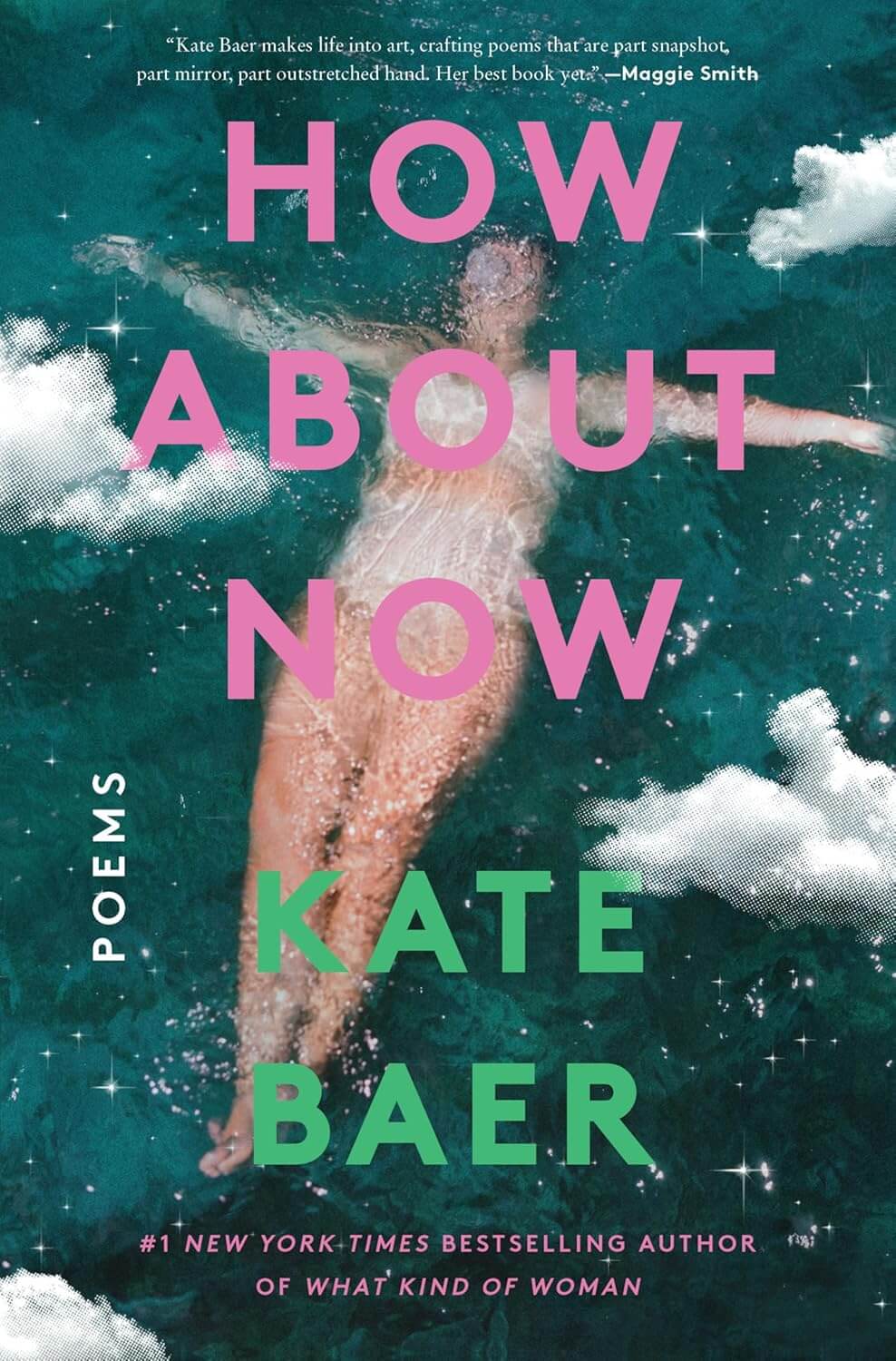
How About Now by Kate Baer
Kate Baer strips the journey of self-discovery raw in her collection of poems that explore the journey into middle-age. Baer lays bare the experience of seeing children grow up and away, and finding how to reclaim the self as it has hidden itself away for so long. Honest and striking, Kate Baer’s poetry captures the beauty of life in each of its seasons and reminds its readers of the intimacy in exploring the self.
Buy the book now: Bookshop.org | Amazon | Barnes & Noble

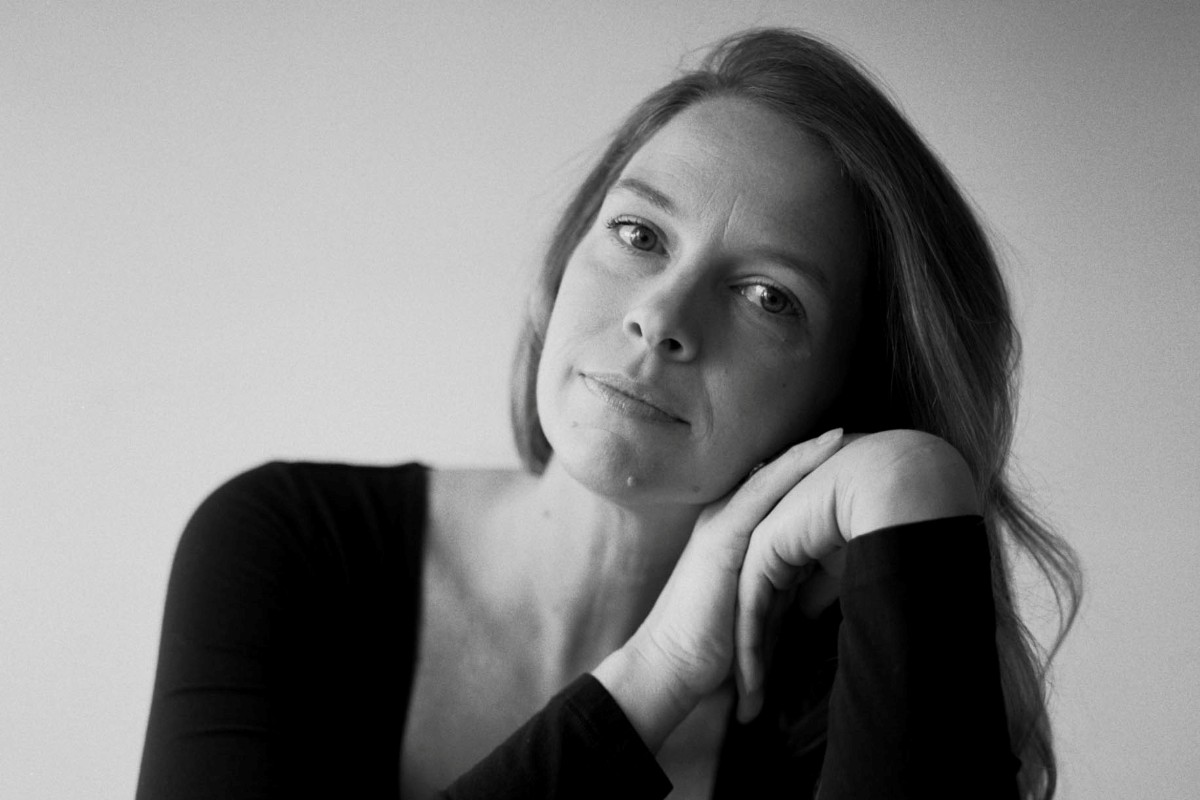

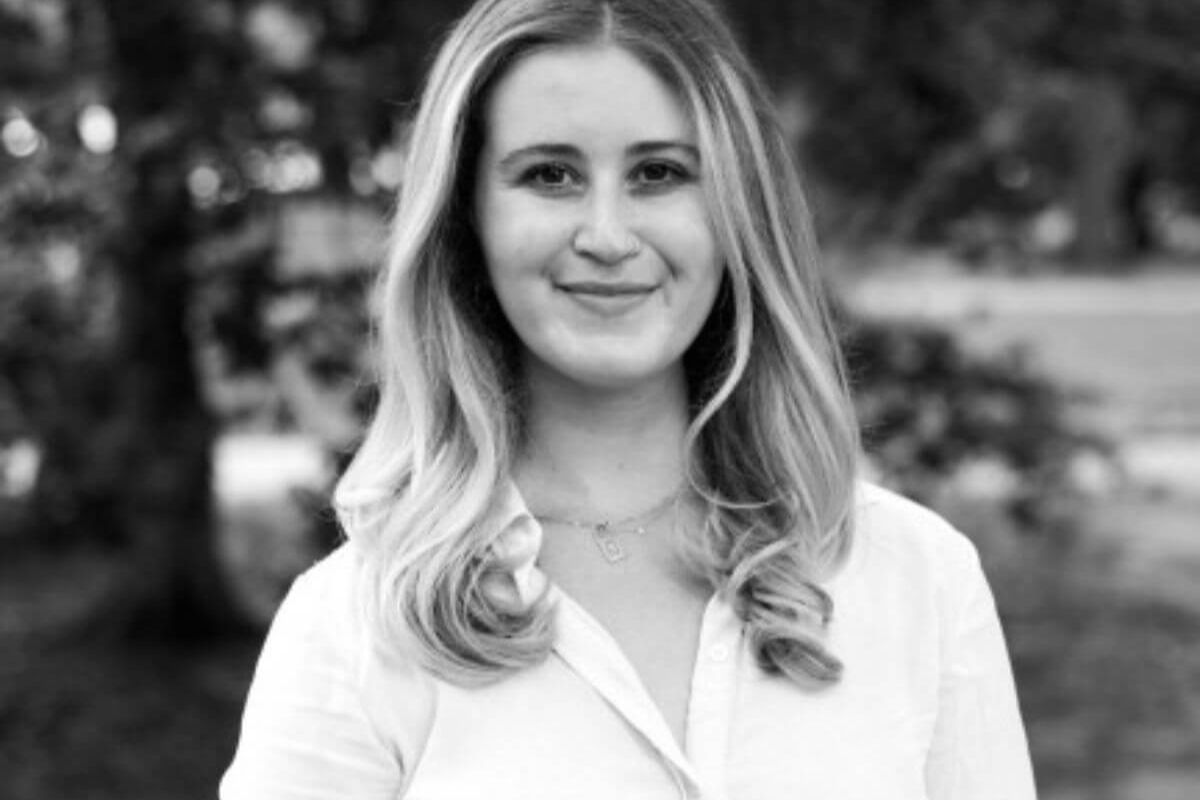
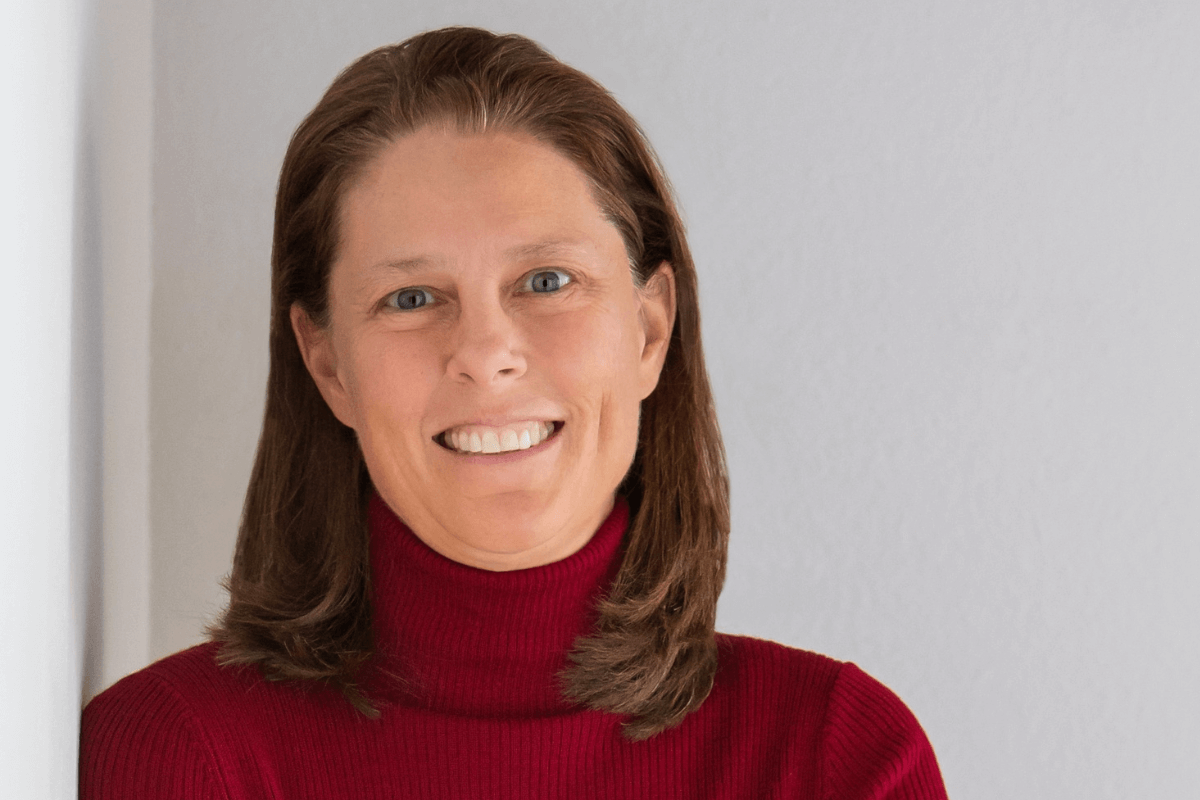
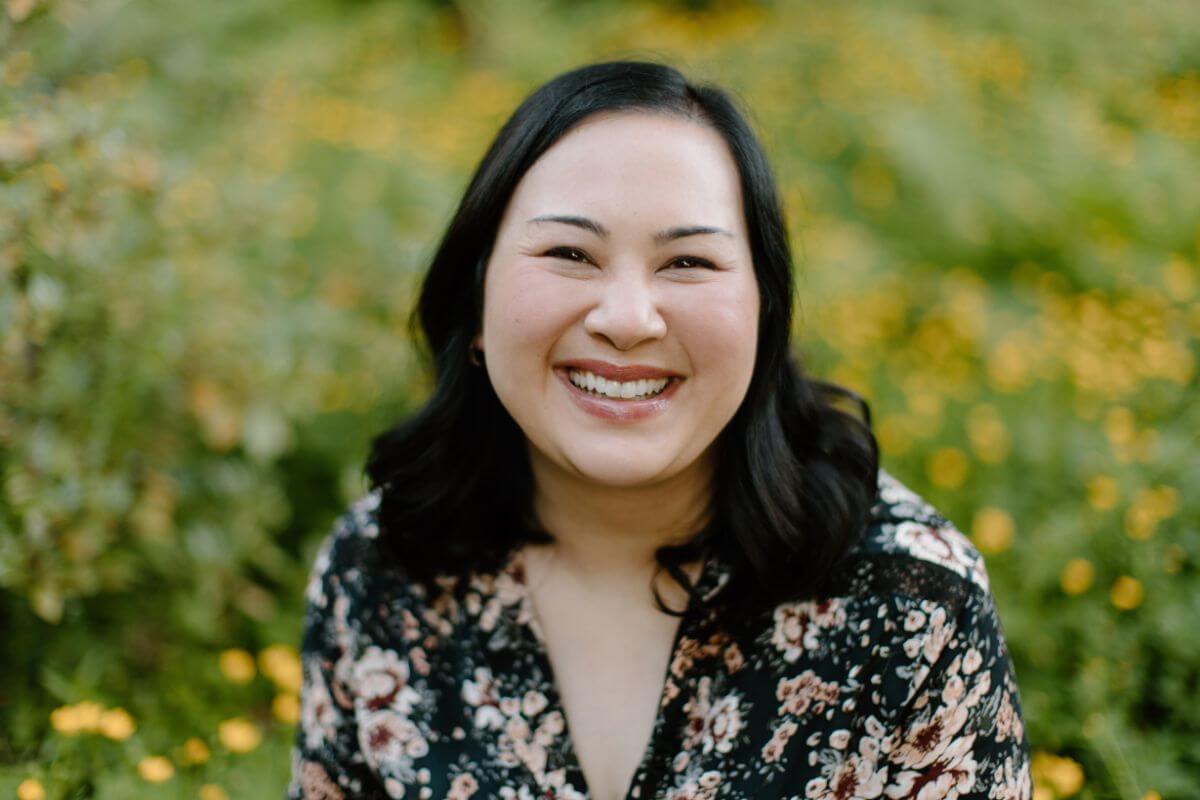
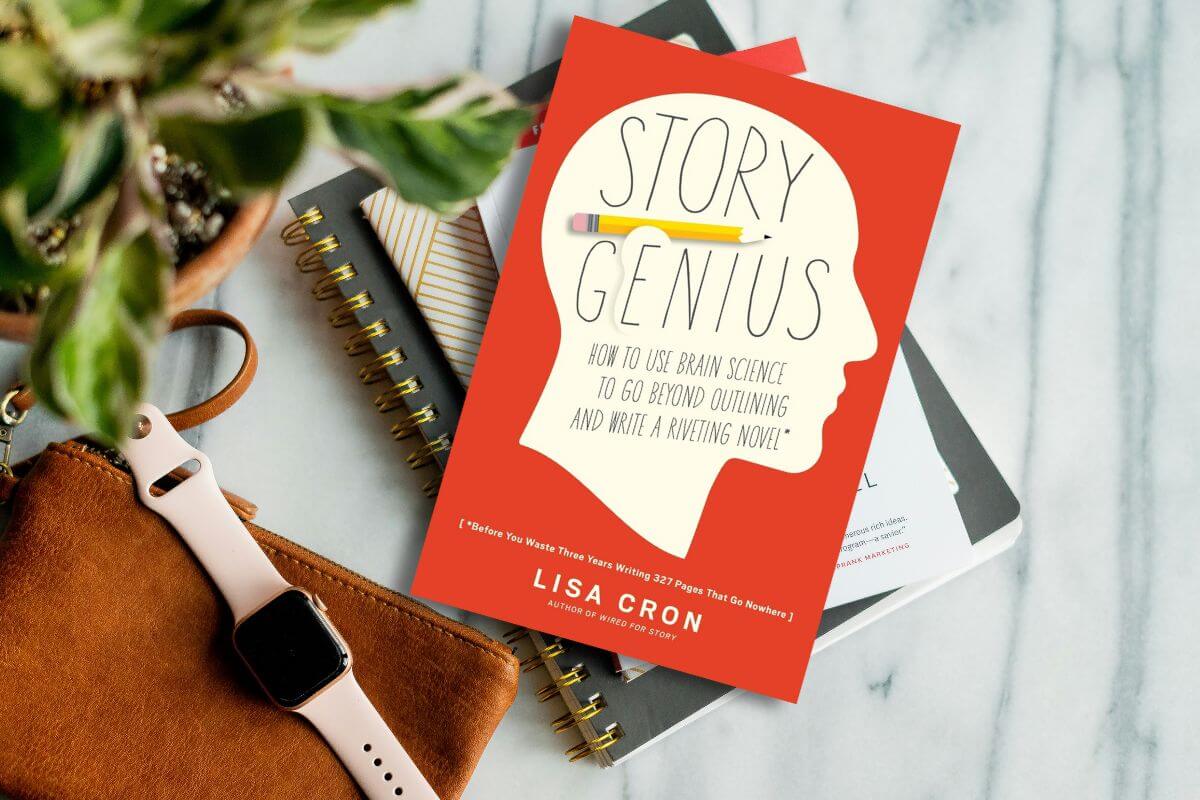
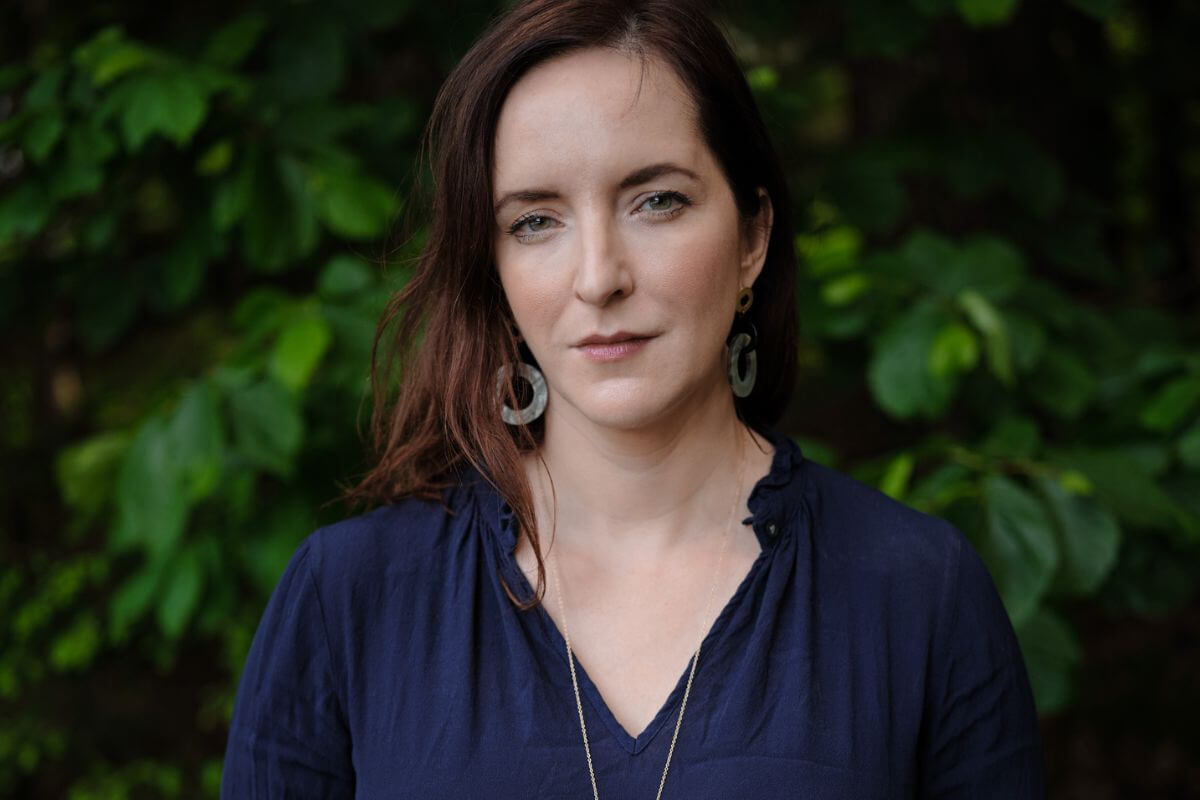
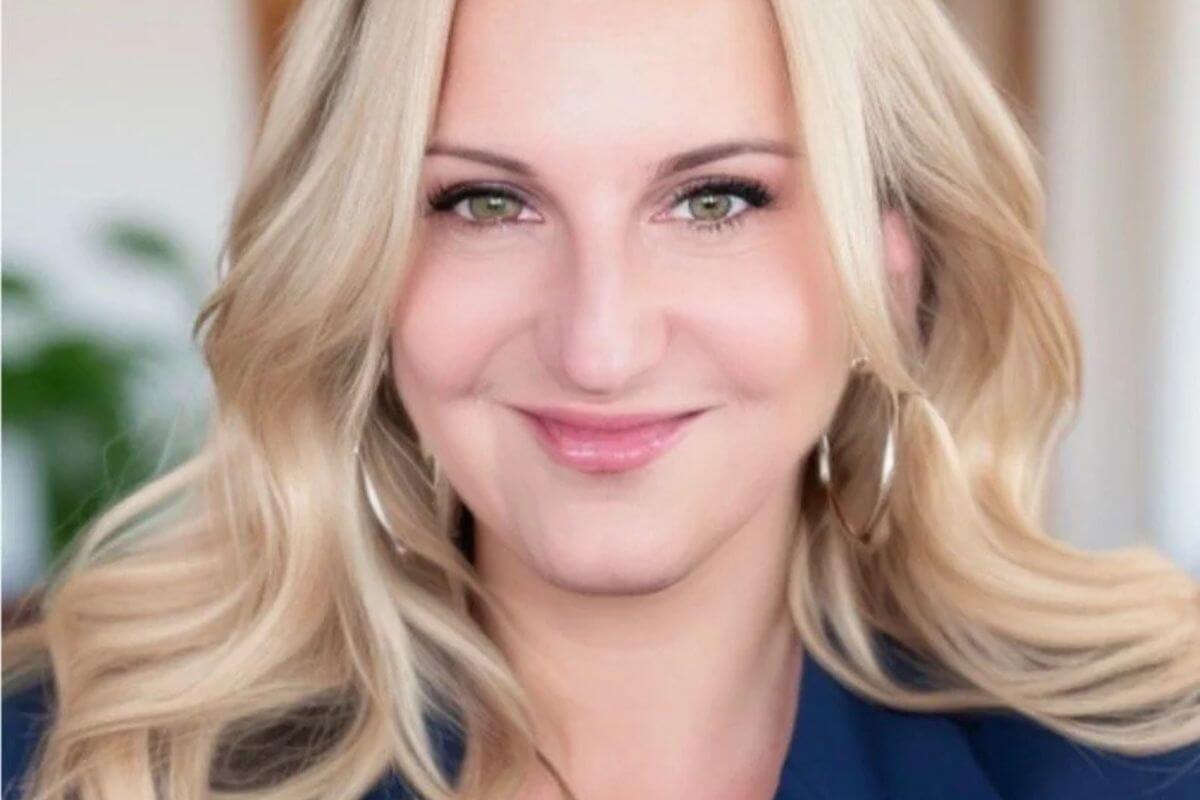
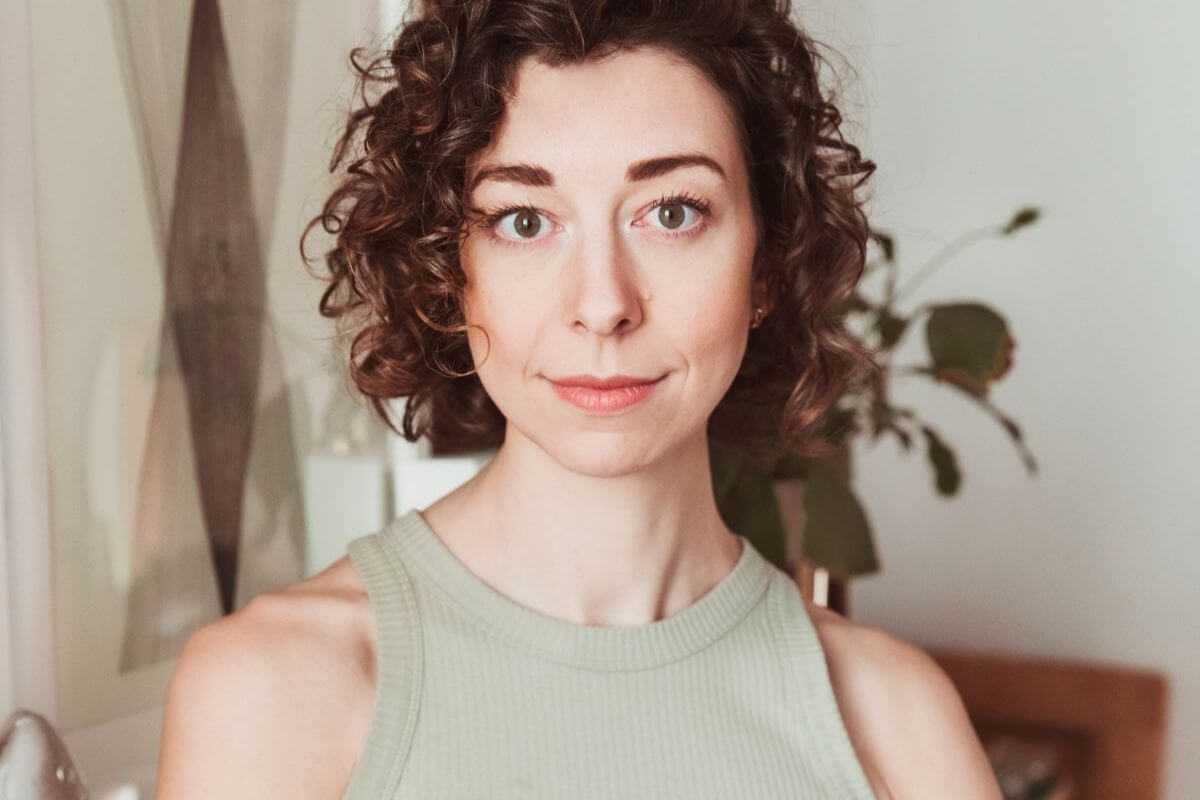
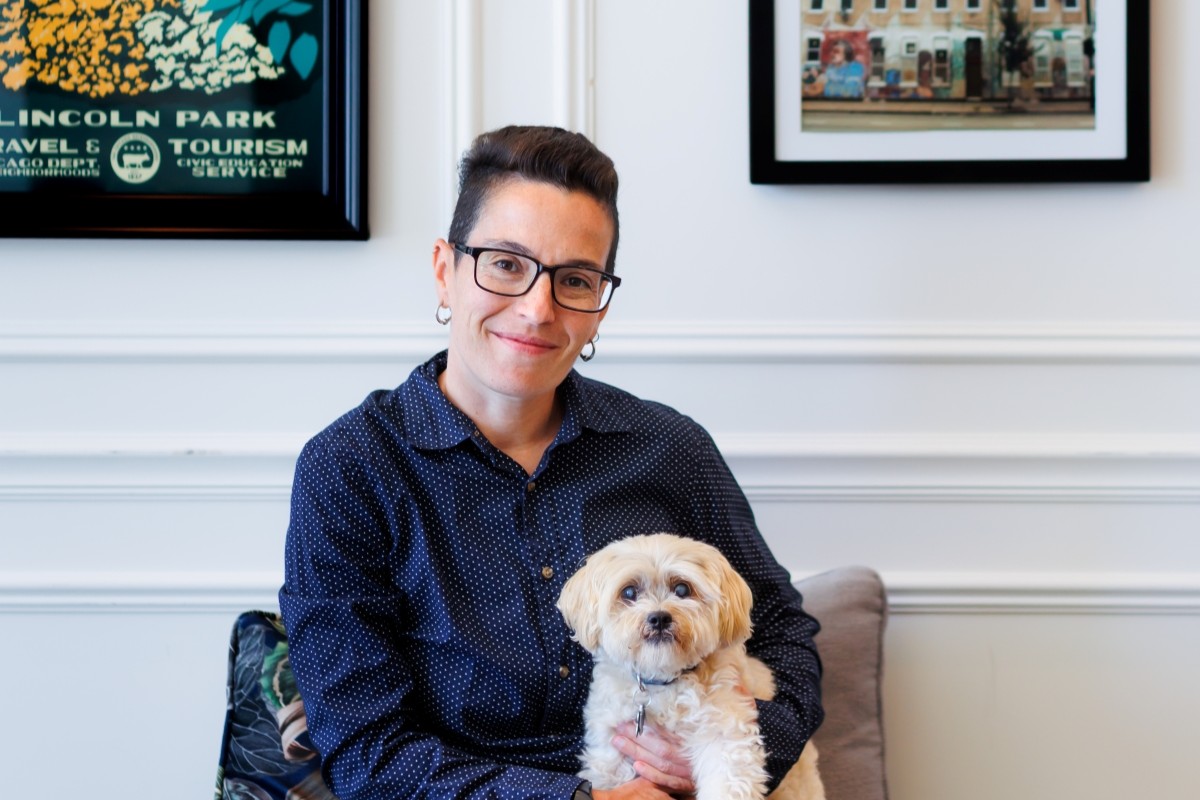

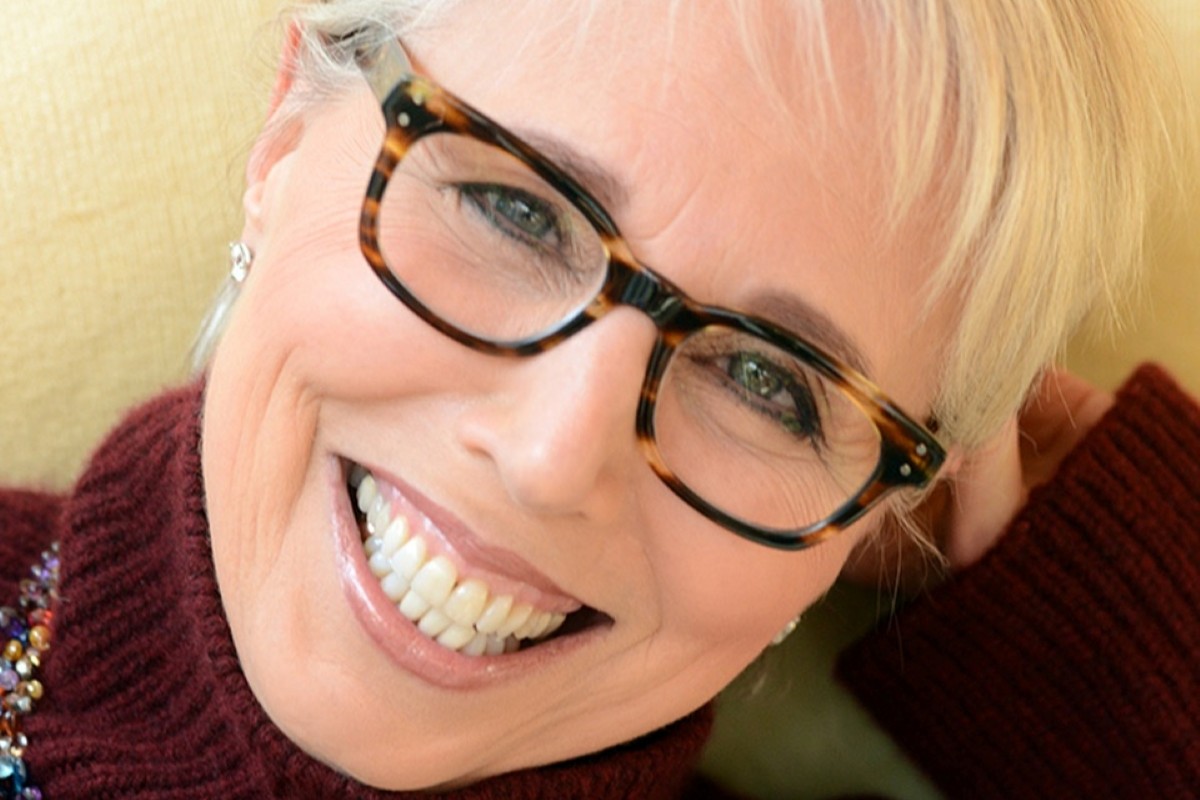
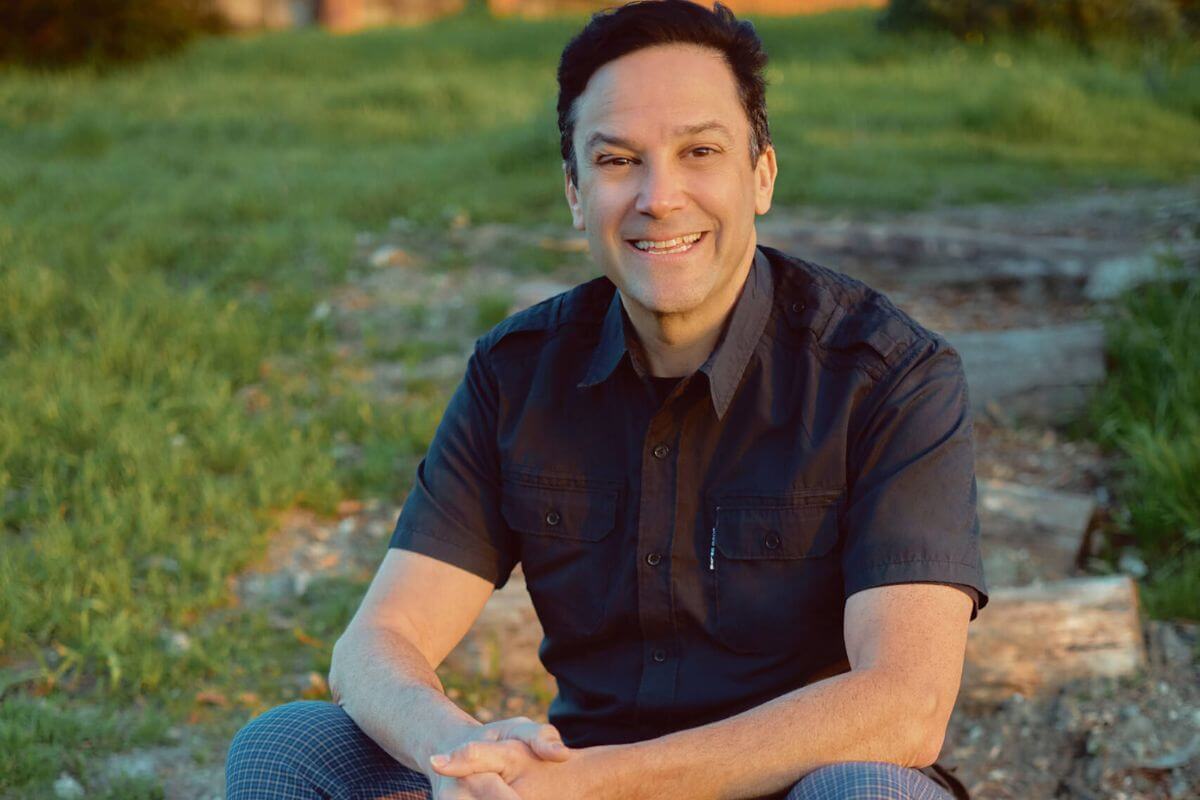
Leave A Comment